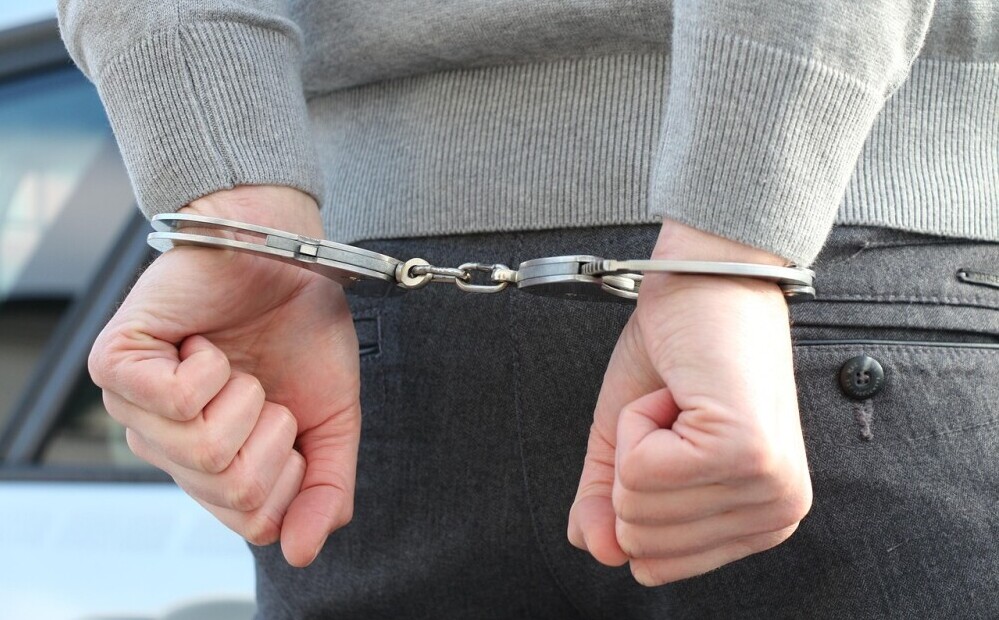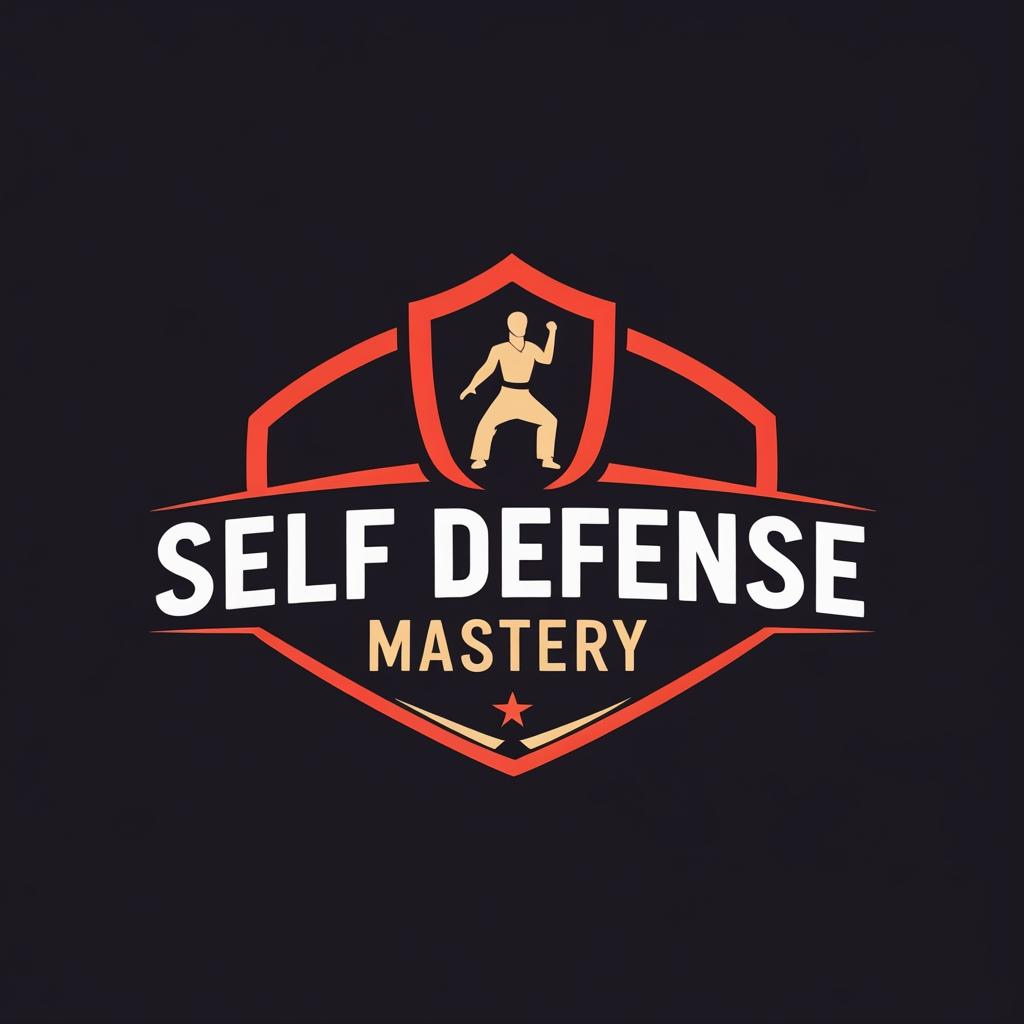What Happens If You’re Arrested for Self-Defense?
You might do everything right and still find yourself in handcuffs after defending yourself. Even if you act to protect your safety, the law treats each case with care. Police often arrest everyone involved until facts are sorted out. So, What Happens If You’re Arrested For Self-Defense?
- What Happens If You’re Arrested for Self-Defense?
- Understanding Self-Defense Laws
- Initial Response: The Arrest Process
- Building a Legal Defense
- Possible Outcomes After Arrest
- Staying Prepared and Knowing Your Rights
- Knowing When to Use Force and Legal Tools
- FAQ: Top Questions After a Self-Defense Arrest
- Conclusion
This guide explains what comes next if you’re arrested after a self-defense incident. You’ll learn why arrests can happen, the importance of knowing your rights, and the steps to expect during the legal process. Knowing what to do helps you stay calm and make smart choices if this happens to you.

Understanding Self-Defense Laws
When you’re arrested after defending yourself, the law looks at every move you made. Self-defense isn’t a free pass—it’s a legal defense with strict rules. Knowing how courts judge these cases helps you understand what’s at stake and what’s expected if you use force to protect yourself.
Immediacy and Reasonableness of Threat
For a self-defense claim, the danger you faced must be both immediate and reasonable. This means you must have believed, at that moment, that you or someone else was about to be harmed. The threat can’t be a distant possibility or a mild argument that might get worse.
- Immediacy: The risk must occur immediately. You can’t claim self-defense for something that might occur later.
- Reasonableness: Would an average person see the situation as dangerous? Courts use this “reasonable person” test to judge your reaction.
If you respond too soon or misjudge the threat, the law may not consider your actions to be self-defense. Every detail, from where you were to what was said and what the other person did, will be examined. The focus is always on what a sensible person would do in the same spot.
Proportionality of Force
The force you use matters as much as why you use it. Self-defense laws require that your response match the level of the threat. If someone shoves you, using deadly force would not be considered proportionate.
Key points about proportionality:
- Use only as much force as needed to stop the threat.
- Deadly force is allowed only if you face serious harm or death.
- Going beyond what’s needed may turn your defense into a crime.
For example:
- Non-deadly force: Used to block a punch or escape a grab.
- Deadly force: Permitted only if you reasonably believe your life is in danger.
Remember, judges and juries look closely at whether your actions were balanced. Proportionality is a common reason why some self-defense claims fail.
Legal Doctrines: Stand Your Ground and Castle Doctrine
Some states follow special rules that affect self-defense cases. Stand Your Ground and Castle Doctrine.
- Stand Your Ground: You don’t have to retreat before defending yourself if you’re in a place you have a right to be. This law applies both in public and, in some cases, in your home.
- Castle Doctrine: This rule protects you when defending yourself inside your own home. You have more legal protection and may not need to try to leave before using force.
These doctrines aren’t the same everywhere. Some states require you to try to escape or avoid conflict first, while others let you defend yourself right away. The details of these laws can change how your case is judged. Learning the laws in your area is crucial for understanding your rights and limitations.
 Photo by KATRIN BOLOVTSOVA
Photo by KATRIN BOLOVTSOVA
Initial Response: The Arrest Process
When you defend yourself and police arrive, things can move fast. Officers often act with limited information. Even if you believe you were right to act, you might be treated like any other suspect at first. The way you respond and what happens next can shape your case. Understanding the police process and your rights at this stage is key.
Police Investigation and Detainment
 Photo by Kindel Media
Photo by Kindel Media
After a self-defense incident, police treat the scene as a possible crime. They will separate the individuals involved and begin asking questions immediately. You may be frisked, searched, and even handcuffed. Detainment does not always mean you are guilty. It means officers need time to figure out what happened.
Here’s what happens during this stage:
- Securing the scene: Officers make sure there is no ongoing threat.
- Gathering evidence: Police collect statements, weapons, and any physical evidence.
- Questioning witnesses, victims, bystanders, and suspects.
- Detainment: You may be physically restrained and taken to the station while the facts are sorted out.
This process can feel harsh, but it’s designed to keep everyone safe and preserve evidence. Stay calm and follow lawful directions. Avoid arguing or resisting during detainment. Your actions now can be used in reports and later reviewed by prosecutors or judges.
If you want to learn more about what to expect from law enforcement after a self-defense situation, check out the details on what to do after you defend yourself.
Miranda Rights and Your Responses
Once you are officially under arrest, the police must tell you your Miranda rights. This is the warning about your right to stay silent and have a lawyer. Anything you say can be used in court. Many people feel pressure to talk or explain themselves right away, but this can be risky.
Key Miranda rights include:
- You have the right to remain silent.
- Anything you say can be used against you in court.
- You have the right to an attorney, and one will be provided if you cannot afford it.
Use these rights. It is usually best not to answer detailed questions without a lawyer. Even simple words can be misunderstood or taken out of context. Instead, politely state you wish to remain silent until you have legal help.
Your first responses are key—both for your own protection and for building your defense. Keep your answers brief. Ask for a lawyer. This gives you a better chance to share your side correctly and safely.
For more information on how to handle yourself after being arrested and the importance of knowing your rights, refer to the guide on legal steps to take after a self-defense arrest.
Building a Legal Defense
After you’re arrested for self-defense, your next steps can shape the outcome of your case. Building a strong legal defense involves gathering facts, collaborating with the right individuals, and presenting clear reasons for your actions. Every detail matters. This section covers how evidence, legal support, and the law itself play roles in showing that your actions were justified.
Role of Evidence: Witnesses, Videos, and Forensics
Evidence is the backbone of any self-defense claim. The clearer and reliable the proof you have that supports your story, the stronger your case becomes.
- Witnesses: People who saw what happened can back up your version of events. Their statements help confirm the threat you faced or the force you used.
- Videos: Security cameras, doorbell footage, and bystander videos can provide a clear view of the incident as it unfolded. Video can settle arguments about who did what and when.
- Forensics: Physical evidence, such as injury patterns, fingerprints, and weapon markings, can confirm if your response matched the threat.
Police and defense attorneys collect these types of evidence early. You should never try to change, hide, or destroy any piece of evidence. Doing so can harm your case and result in additional charges. Evidence can help prove you acted in fear and only did what was needed to protect yourself.
Working with Defense Attorneys: The Importance of Prompt Legal Counsel
Getting a defense attorney quickly is one of the most important things you can do after an arrest. Lawyers protect your rights and speak on your behalf. They know the law and how to use facts in your favor.
 Photo by RDNE Stock project
Photo by RDNE Stock project
A defense attorney will:
- Review all police reports and evidence.
- Find and speak to witnesses who can support your side.
- Explain your options—whether to go to trial or seek a deal.
- Ensure that the police and prosecutors adhere to the law.
Do not wait to get legal help. The sooner you have an attorney, the better you can protect yourself from mistakes or wrongful charges. If you want to understand more about responsible legal action, refer to the information in the Self-Defense Disclaimer.
Legal Burden: Proving Self-Defense Was Justified
When you claim self-defense, you and your attorney must show that your actions were reasonable. The law puts the burden on you to explain why you had to act, and why you did not have another safe choice.
Here’s what you’ll need to show:
- You believed you were in real danger.
- The threat was happening right then, not in the distant future.
- Your response was appropriate for the level of threat you faced.
This means that your story, the evidence, and any expert or witness statements must all align. If your actions seem excessive or if the threat was not clear, your defense may be weak. Judges and juries will look for gaps or things that do not make sense. A clear, simple story—backed by facts—gives you the best chance of success.
To help you understand when fear is reasonable and how the law views your state of mind, see the guide on Understanding Reasonable Fear.
Possible Outcomes After Arrest
Getting arrested after acting in self-defense is a tough experience. What comes next depends on the strength of your case, the evidence, and the laws in your state. Legal outcomes can range from dropped charges to a full trial that ends in either a conviction or acquittal. In rare cases, you may even be eligible for some form of reimbursement. Understanding these paths can help you prepare for each stage.
Dismissal, Charges Dropped, or Diversion
After your arrest, the prosecutor will review the evidence and determine the course of action. If it’s clear you acted in self-defense, the prosecutor can dismiss the case outright. Sometimes, charges get dropped after more facts come out, like a new video or credible witness accounts.
Other times, you may be offered a diversion program. This is more common for minor charges. Diversion allows you to avoid a criminal record by completing specific requirements, such as community service, classes, or counseling. If you complete the program, the charges will be dismissed.
Key points about dismissal and diversion:
- Strong evidence of self-defense can expedite the dismissal process.
- Diversion is not a plea of guilt, but a way to avoid trial.
- You may still face civil lawsuits, even if charges are dropped.
Some states have special legal safe harbors for self-defense cases that can trigger early dismissal. For more on possible legal protections and how to document your case, review resources like those found in the self-defense law guide.
Trial and Verdict
If charges are not dropped, your case may proceed to trial. Trials are formal and follow strict rules, with both sides presenting their respective versions of the events. The jury or judge will decide your fate based on the facts and how well your self-defense claim fits the law.
During the trial:
- Your lawyer will show the threat you faced, how you responded, and why it was reasonable.
- The prosecution will attempt to demonstrate that your actions were unjustified or excessive.
- Physical evidence, witness testimony, and expert opinions play a big role.
Possible verdicts include:
- Not guilty: You’re cleared of all charges. This means the court agrees you acted in self-defense.
- Guilty: You’re convicted and face penalties, which may include jail, probation, or fines.
- Hung jury: No agreement is reached, and a new trial may be scheduled.
A trial brings stress and uncertainty, but it’s also your chance to tell your side. Strong preparation and clear evidence help your defense stand up in court.
Restitution and Reimbursement for the Defendant
If you win your case, you may wonder if you can recover costs. In some states, laws allow you to seek reimbursement for legal fees, lost wages, or property damage related to the arrest. This is not always automatic. You usually need to file a special claim or motion with the court.
Types of possible reimbursement:
- Attorney’s fees: Some states allow compensation for your legal bills if you are cleared.
- Lost income: You may seek compensation for the pay you missed due to time spent in jail or court.
- Property return: Items taken as evidence, like weapons or personal effects, should be returned if you’re found not guilty.
These processes take time and may not cover all your losses. Ask your lawyer what is possible in your state, since laws differ widely. Some cases may also qualify for protection under civil immunity statutes, which can prevent civil lawsuits related to your self-defense actions.
Staying Prepared and Knowing Your Rights
Staying ready and understanding your rights set the foundation for a strong self-defense case. Acting in self-defense can feel overwhelming, but preparation is your best line of defense, both before and after an arrest. Knowing what to expect and what you’re entitled to under the law protects you from making costly mistakes.
Practical Steps to Stay Prepared
Preparation starts long before any trouble arises. You can’t predict danger, but you can be ready if things go wrong.
- Learn state self-defense laws: Laws can differ a lot by state. Stay updated on local rules about when and how you can defend yourself.
- Take self-defense classes: Training builds both skill and confidence. It helps you react under stress and use the right amount of force.
- Secure legal resources: Know how to reach a defense lawyer fast. Save contact info in your phone or wallet.
- Document incidents: If you feel threatened before an event, keep records. Save texts, emails, or photos that show a pattern.
Staying prepared means building habits, not just reacting after the fact.
Understanding Your Legal Rights After Arrest
Knowing your rights can help keep you safe from making statements or choices that could harm your case. Many people give up important rights because they feel pressured or confused.
- Right to remain silent: You never have to answer police questions beyond your name and basic information.
- Right to a lawyer: You have the right to legal counsel before you speak about the event.
- Right to refuse searches: Unless officers have a warrant, you do not have to consent to searches of your home, car, or phone.
If you use force to defend yourself, you may be treated as a suspect. Police may act quickly, but you still have these rights. Assert them calmly and clearly.
Keeping a Clear Mind During Stress
Being arrested is stressful. Fear and adrenaline make it easy to forget even simple steps. Plan your actions ahead of time.
- Stay calm and polite: Getting upset or arguing can make things worse and harm your defense.
- Don’t try to explain right away: Even a short answer can be turned against you. Wait for your lawyer.
- Focus on safety: Cooperate with officers, but refrain from providing more information than necessary.
Practicing these habits helps you stay in control, even in tough moments.
Knowing When to Use Force and Legal Tools
Preparedness is not just about skills. It’s also knowing when force is allowed and when it is not. Owning legal tools like pepper spray or a licensed firearm brings extra rules.
 Photo by Dan Galvani Sommavilla
Photo by Dan Galvani Sommavilla
- Use force only as a last resort: Courts look for proof that you tried to avoid harm first.
- Know rules for weapons: Carrying a weapon means knowing storage and usage laws.
- Secure permits: If your state requires permits for firearms or other tools, ensure they are up to date.
FAQ: Top Questions After a Self-Defense Arrest
Stick to the facts and don’t volunteer extra details. You have the right to remain silent. Ask for a lawyer right away. Don’t discuss the incident until your lawyer is present.
You might. Police and prosecutors may charge you even if you believe you acted legally. Whether those charges stick depends on the evidence and your local self-defense laws.
In most cases, you can post bail if you’re charged. Bail requirements depend on the severity of the charge, your criminal record, and if you’re considered a flight risk.
Yes. Even if you think your actions were justified, a lawyer protects your rights. They know the laws, can speak for you, and help build a strong defense.
Self-defense laws vary by state. Some states have “Stand Your Ground” laws, while others require you to retreat if possible. Where and how the incident happened can change the outcome. Your lawyer will explain how local law applies to you.
Have other questions? Let us know in the comments, or contact a defense attorney for advice.
By staying prepared and knowing your rights, you put yourself in the best position to defend both your actions and your freedom. These habits also show law enforcement and the court that you take safety seriously.
Conclusion
Facing arrest after defending yourself can feel overwhelming. The legal process will scrutinize your actions and decisions at every step. Knowledge and quick access to legal support make a real difference in the outcome. Staying informed about local self-defense laws and your rights puts you in a stronger position if trouble comes. Continue to build your awareness and skills—these habits may protect your freedom as much as your safety. For more guidance on personal safety and legal steps, explore related resources throughout Self Defense Mastery. Thank you for reading—your preparation today is your best defense tomorrow.

![What To Say And Not Say To Police After A Self-Defense Incident [2025 Guide] What to Say and Not Say to Police After a Self-Defense Incident](https://selfdefensemastery.com/wp-content/uploads/2025/04/police-scene-dusk-crime-tape-guide.jpg)




